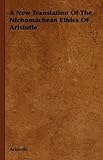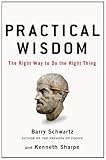Previously we’ve discussed that for Aristotle, living the good life means achieving a state of eudaimonia, or internal excellence, which is both hard to achieve and hard to lose once achieved. The good life consists of two types of excellence: character excellence, and intellectual excellence.
What exactly is intellectual excellence, then? It’s phronesis, or rather, practical wisdom. If character excellence is what makes the goal correct, practical wisdom makes what leads to it correct. Practical wisdom, when combined correctly with character excellence, shows us the proper way to achieve our goals.

Let’s look at a non-moral example to make this all a bit easier to understand: cooking.
A novice has to follow recipes (i.e., rules) when they’re cooking, or perhaps they can be told what to do by someone who is a chef who already knows how to do this. But these recipes – these rules – can only take you so far. In order to eventually become a chef themselves, that novice must grasp something about a particular chunk of reality, in this case food. Once they can “see” things in a certain way, they no longer needs recipes, or rules, or external guidance, because the practical wisdom they developed can now guide them even in novel cooking situations which they encounters. They can, in fact, develop their own recipes by creating unique combinations. Similarly, through observation, imitation, experience, and habituation, a person develops practical wisdom and thus learns how deliberate and choose the virtuous action even in novel moral situations.
So why does this matter?
3. It makes sense of how we teach ethics to children
We often use simplified ethical rules to teach our children how to behave. Think, for example, of the golden rule: Treat others like you want to be treated. Or the myriad of other rules we hand down: don’t hit, don’t lie, etc. All of these are pretty good rules in general, but there are also probably exceptions to most of them as well. These rules are like the recipes a novice follows. They will get you by, but you only follow them because you don’t understand what’s going on well enough yourself. Once you’re able to actually grasp what’s important and relevant about a situation, you don’t need the rules anymore, because your own judgment is actually all the better.
2. Practical Wisdom is necessary for basic day-to-day problem solving
Practical wisdom is not some esoteric concept that you’re only going to find when we’re talking about Aristotle. This is a basic skill that we need to survive. Any time that you have a goal and you ask yourself how you can accomplish it, practical wisdom kicks in and offers up possible suggestions.
If you’re hungry, what should you do? Your practical wisdom is going to offer up some ideas: perhaps cook dinner, order takeout, or steal a snack from the gas station. If you also have character excellence, though, some options might not even appear on your list of ideas. A virtuous person would likely not deliberate about whether they should steal their next meal. But this simplifies things too much. It’s not always a decision between clearly right and wrong actions:
A good doctor needs to be honest with her patients, and kind to her patients, and to give them the hope they need to endure difficult treatments. But in diagnosing or treating a patient, these aims can be at odds, and the doctor must decide whether to be honest or kind, or more likely how to balance honesty and kindness in a way that is appropriate for the patient in front of her. – Barry Schwartz and Ken Sharpe, authors of Practical Wisdom
Developing this skill is important to achieving anything at all in life, but it is especially important in achieving the good life. Any effort you put into your critical thinking skills will also help you along the path to achieving the good life! How convenient!
1. The Good Life is not possible without practical wisdom
Practical wisdom is just about as “applied” as you can get when it comes to philosophy. You start by following the rules that other, wiser people that have come before you have left for you (parents, teachers, etc.). But as you follow these rules, you learn to understand reality a bit better, and eventually you no longer need them. Your character tells you the ideal outcome for a situation, and your practical wisdom shows you the correct path to take to get there. Once you put these two things together, you achieve the good life.
It sounds simple, but it is truly a life long learning process. There are plenty of obstacles along the way, whether it’s bad ethical role models or stumbling blocks to developing our critical thinking skills and practical wisdom. In fact, our mass media and societal views on what knowledge is are both two huge obstacles that we will discuss in the future.
For me though, the biggest problem is: how do you know once you’ve achieved practical wisdom? Perhaps you’re cooking crazy concoctions and not following any recipes. You’re determined to believe that these are delicious, but are they really? Can we fool ourselves into thinking we’re wise when we’re not?
Aristotle has an answer even to that – it comes in the form of true friend who can set us straight when needed. And that’s also rare, just like the good life itself.
For Further Reading:


1 comment